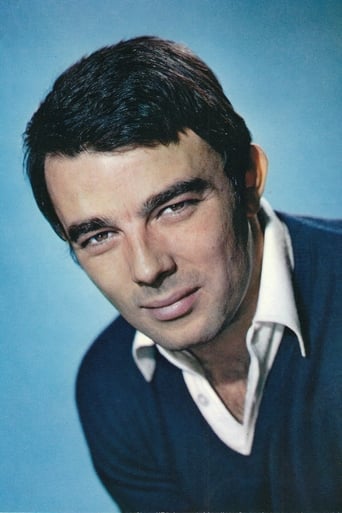MisterWhiplash
Les Mistons displays Francois Truffaut's special gifts as a filmmaker in a nice shot of 18 minutes in Les Mistons, as he works with children, and a love story with the young. While the story is simple- five kids who've barely had their voices crack follow a young woman, Bernadette, who becomes their envy when she's dating Gerard- the execution is quite intelligent and involving. Before the 400 Blows and Breathless knocked around the streets of Paris for locations, Les Mistons shows their characters all over the place, in the woods, in the streets, on bridges, and even inside a rustic looking stadium of shorts (I loved these scenes, with their high angles and timing). And the children have a very, very realistic feeling to them, as this is indeed what kids their age do, if they have no technology or attention span. There's even a small kind of Cocteau quality to some of their scenes, like when they are play-firing guns at each other, or hatching their 'vicious' games against the love-birds.It also helps a good deal that the actress playing Bernadette is incredibly pretty, practically without trying, though it's not to say that Truffaut doesn't get some quixotic shots of her playing tennis or riding her bike. But it is without some doubt that the story will end with some tragedy, or at least some revelation of this double-sided way about youth, both for the invigorated like the kids or for the seemingly life-long blissful partners of Bernadette and Gerard. It contains the light quality of all of Truffaut's films, and while there isn't enough time to really get to know these kids or Bernadette (though for the latter it's better to have the mysterious, almost no-dialog quality about her), it works wonderfully- one of my favorite short films.
Alice Liddel
in 1954, Francois Truffaut the young critic wrote a polemical essay in 'Cahiers de Cinema' called 'A Certain Tendency in French Cinema', which denounced contemporary mainstream cinema in France, with its inert notions of quality and prestige, and called for a cinema that would be responsive to experiment and outside (i.e. American) influence, which would be true to life in contemporary France, and which would facilitate the personal visions of the director, rather than borrowing the personal vision of a great writer, debasing it in the process.Three years later, and what was Francois Truffaut the young film-maker putting in place of the dread 'Cinema de papa'? Well, like it, he adapted a novel; and like it, he concentrated on its love story. Like it, a dubious romantic strain smothers any attempts to portray 'real life', never mind the processes that go into making that real life - his heroine has no personality or will of her own, and is associated with vague ideas of freedom, and traditional essences of the natural. Hey, I'm not the first to notice the disparity between Truffaut the revolutionary critic, and Truffaut the conservative film-maker. Originality for its own sake can often lead to the unwatchable. Where Truffaut decisively breaks with the cinema de papa is the freshness of his style, his exuberant love of film, and his schoolboy-like excitement at the sheer good fortune of being able to make a film, no matter how it turns out. These qualities retain their ability to enchant today, qualities which still make Truffaut's first three features THE most precious things in the whole of cinema for me, and which makes the subsequent slide into mediocrity and disillusionment so painful.The opening credits are bewitching, not because Truffaut films a beautiful, happy young woman in the sunny open air on a bicycle in the countryside, but because he manages to find a way of filming that beauty and youth and happiness and sunniness and openness that allows the viewer to share and experience it, that liberates a formal set-up with the potential to be weighed down with technical artifice, and approximate something like life, even if it is only a hope or dream of life.Truffaut's early films are so vital and moving because he achieves a poignant paradox: he shoots narratives about sadness, mistakes, failure, entrapment, despair, uncertainty, with the freest style, so that the pulse of the filming - unstable, improvisatory, immediate - is the pulse of life and emotion in all their bewildering varieties, an expression of feelings characters can't always express. 'Les Mistons' is a very sad story, looking forward to 'Shoot the Pianist' and 'Jules et Jim', with its doomed lovers, its pained nostalgia, its untracable crossing from one threshold to another, from youth to maturity, from love to indifference, from life to death. A motif - of the spontaneous lovers 'imprisoned' behind the 'bars' of trees etc. in the very nature that is supposed to be unrestrained, will be developed in 'Jules et Jim', while more 'studied' compositions, such as the sequence in the ancient arena, the complex framing and shifting, elusive notions of time (including a middle-aged narrator telling a story from his past we'd assumed was set in the present day) would likewise become more prominent in Truffaut. His ability to psychologically penetrate an undifferentiated group of boys, as in 'Les 400 Coups', is remarkable. But, as with those films, we are as likely to remember the gleeful cinematic facility, the offhand tributes to favourite masters (Lumiere, Cocteau, Vigo, Rossellini, and, especially, the Renoir of 'A Day in the Country'), or the gorgeous, melancholy score. Truffaut affirms cinema's power to capture life, but also its ultimate power to transcend it, to reverse its inevitable, brutal move towards decay, as in the lovely 'Orphee' allusion here that raises a boy playing dead to life. It's interesting that Truffaut, with his reputation for misogyny, in this early film questions the very processes of voyeurism, of defining and interpreting the female through gazing, that he would be later accused of indulging in.
